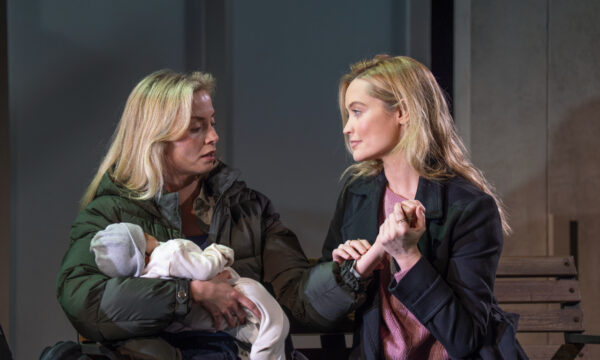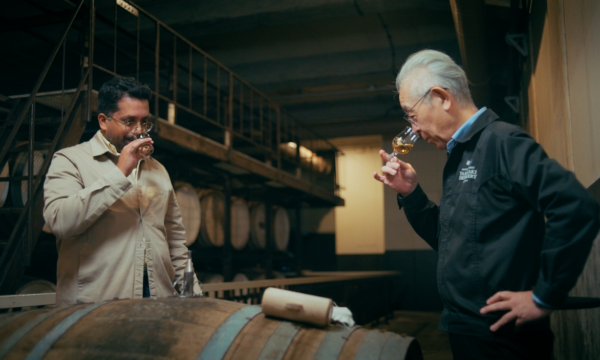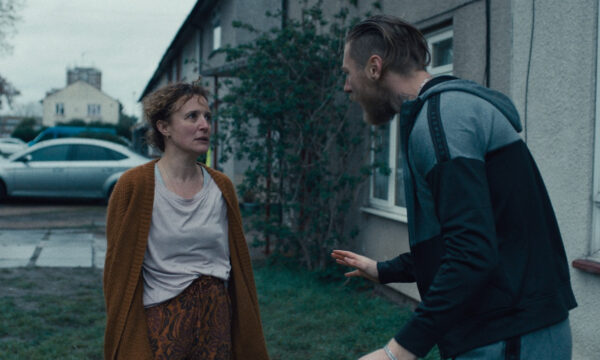A “Precious” moment: An interview with screenwriter Geoffrey Fletcher

In 2009, Geoffrey Fletcher’s adapted screenplay Precious won the Academy Award for Best Adapted Screenplay (making him the first ever African American to win within that category). The film was also the first ever work to win both the Grand Jury Prize and the Audience Award at the Sundance Film Festival. Now he is launching a competition in association with The Bombay Sapphire Imagination Series, at the world famous Tribeca Film Festival. Budding filmmakers will adapt a specially released script by Fletcher and five winners will go on to direct and produce their own individual films, which will premiere at a star-studded international event in early 2013. The Upcoming spoke to Fletcher about the competition, what is important to him within film and about his renowned career to date.
Hello, thank you so much for speaking to us.
Geoffrey Fletcher: Hi! Yeah, fine, fine. How are you?
I’m great, thanks. How are you?
Oh, great. Happy! Very happy.
So, I really want to speak to you about the competition you’re launching, which sounds so exciting, but before that, I’d like to ask you more generally about any advice you would give to new film-makers and screenwriters about how to get themselves out there and get their work noticed. Is there any particular advice you would give?
Sure. Well, I would advise any budding film-makers to do at least two things, which are to keep working on your craft and to try every door. That way, opportunity will… emerge. A lot of people think, “I just want to do the art” but you really have to do the other parts as well. And there are so many factors outside of your control – especially for actors – so every factor within your control has to be rock solid. So, developing yourself as an artist and not only search for opportunities, but also create opportunities.
Well, this competition that you’re launching is an amazing opportunity for loads of film-makers. Is there anything, any quality that you think a film should have? What, for you, will make a film really stand out?
Well, we believe that the most important thing a film can have is passion and imagination. It’s not a big budget on a shoot that an audience will connect with. A project, one that will be remembered for a long time, will consider not necessarily what the film-maker has seen in other films, but will think about things that they want to say – things that excite them.
The film-makers that enter the competition need to interpret one of your scripts. When will it be available? Can you tell us anything about it?
Well, it’s available tomorrow through the website. And the script is about… Well, it’s a short film script and it’s very much a framework for reaction. So, although it has a structure, it also has an enormous amount of room to take the story wherever you wish. And that’s what we love about it. Some degree of structure is helpful, certainly, but within the structure of the script people can really, really go off their own way.
So it’s imagination, mainly, that you’re trying to encourage?
Exactly. Trying to encourage it in budding film-makers and then also in the average person. For me, that engagement with imagination sustained me for many years. Looking back, I feel that’s what kept me going. Before Precious, I taught at Columbia University and one of the assignments that I set was very similar to this. Students would have to interpret a very minimal script and see where they take it. The script for this is made solely for this competition and we really can’t wait to see where people take it.
Is this focus on imagination something that draws you to adaptation? Because, thinking about Precious – obviously, the book is in first person – it has been compared to Alice Walker’s The Colour Purple. How did that style affect your approach to adapting it?
Well, I think in that case, I had such admiration for the book – there’s so much power and passion in the book. It inspired me to take many leaps. One of the things that I’m so proud of is that, although those leaps were daring, they were there in the universe of the book. I was warned before I read the book that it was grim and… difficult, but from page one I saw that it was brimming with life. I hadn’t even heard of the book before, because at the time I was reading college books and classics, so modern classics kind of slipped through the gaps. I’m embarrassed, but grateful for that, because I think otherwise I might have been frightened about taking so many leaps. It was actually the first adaptation I had done.
The film, as you touched on then, is beautiful, but in a way very harrowing to watch. But it’s also filled with these moments of joy, which seem to burst through as though they can’t be suppressed. Is this an idea that you’re particularly drawn to?
Well, everything that you just described, you know, harrowing and it’s funny and… you just described life. And I look at film as life condensed. So, it’s great to have that expression within a theme that’s running through. And to have these things with some intent, not to create gratuitous shock value.
Will your new film, Violet & Daisy, approach and express life in a similar way?
I think this film has moments of dark or dry humour, but also bursts of sadness and stretches that are rather surreal. And at the end of all of that, I hope it says something about how we treat each other and that it’s very human.
Well, thank you again for speaking with us. We really look forward to seeing your new film!
My pleasure! Have a wonderful evening – it’s night there right? And congratulations on getting past the rain!
Abigail Moss
Geoffrey Fletcher’s exciting competition opens tomorrow. Access the exclusive script and find more information on how to enter the Bombay Sapphire Imagination Series Filmmakers Competition here.

















Facebook
Twitter
Instagram
YouTube
RSS